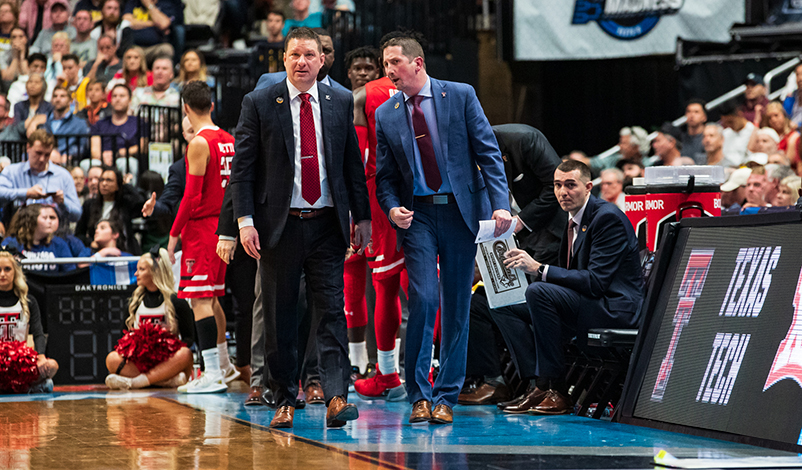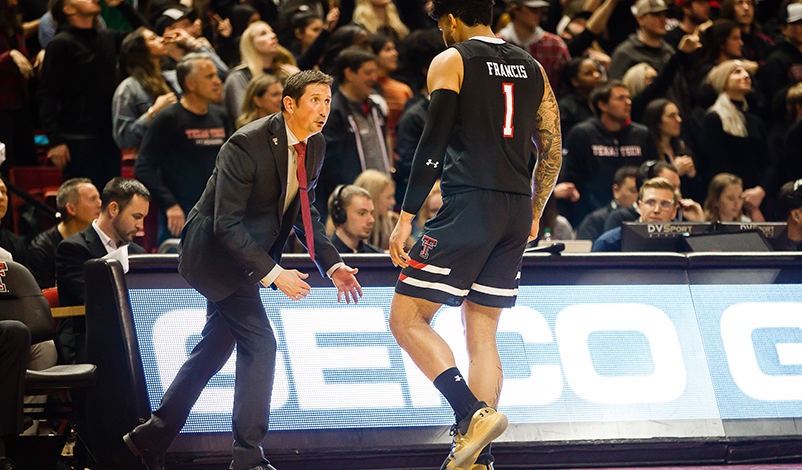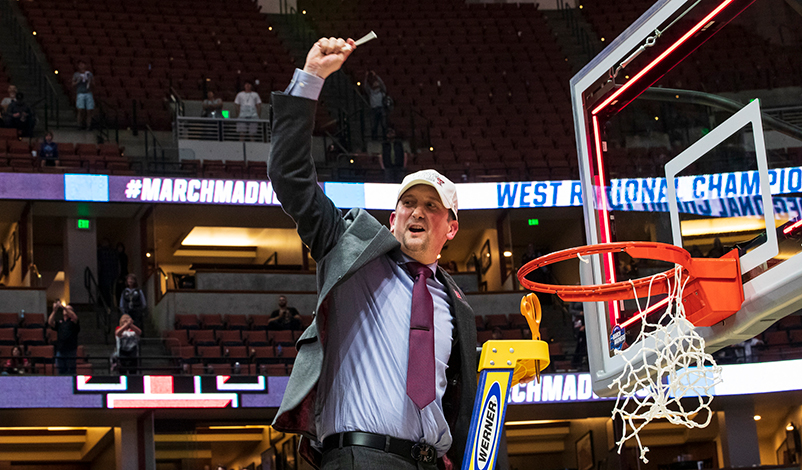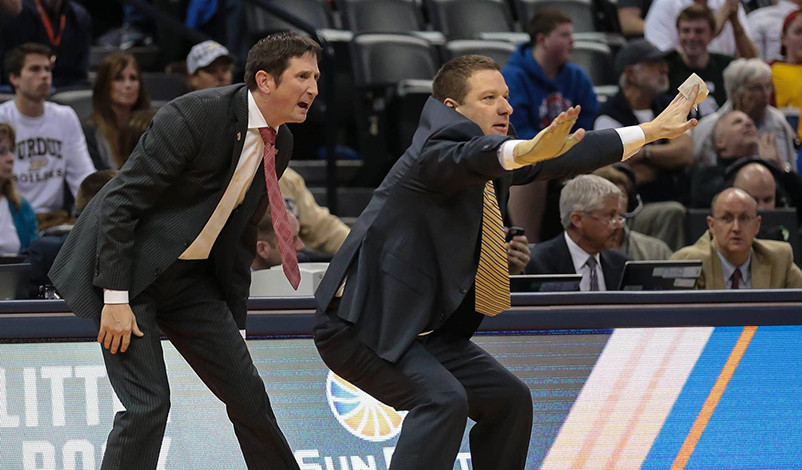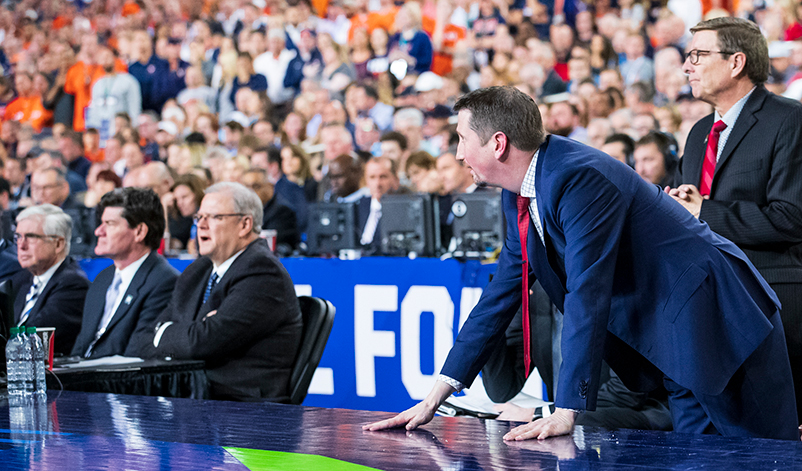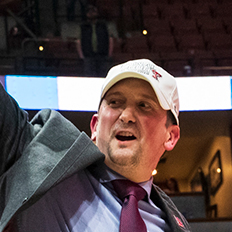
Brian Burg '03
History & Secondary Education
Mustang Team Trains Burg for the Future
From youth basketball to Texas Tech assistant coach, Brian Burg ’03 made his dreams a reality.
MMU: Tell us about your history with basketball. When did your passion for the sport start?
BB: I became involved with basketball at the age of four. My dad, who is my hero, played college basketball and from an early age my love for the game has grown substantially.
MMU: You played basketball at Mount Mercy for two years. What was that experience like?
BB: I value the relationships made both on the court and off the court. I am very thankful that Coach Gavin and Coach Drymon recruited me. My experience at Mount Mercy University changed my life. I developed lifelong friends and truly learned a lot about myself.
My experience at Mount Mercy University changed my life. I developed lifelong friends and truly learned a lot about myself.
This was my first time living outside of the state of Texas and, being away from family, you learn about yourself in a new environment. I look back on my years at Mount Mercy and cherish the memories throughout my time as a student-athlete. I was challenged on the court by great staff and also in the classroom that helped mold me into the person I am today.
MMU: You’ve been coaching since 2003. What sparked your interest in coaching, and where has it taken you?
BB: I grew up with a basketball in my hand because I wanted to be like my father. In many cases, the life lessons that he taught me all came from his college coach. Teamwork, work ethic, discipline, unselfishness, and toughness were all life skills that he relayed to me—and that he uses on a day-to-day basis in running his business.
I often look back at the relationships with the coaches from Mount Mercy. The one thing that sticks out is the relationships with Coach Gavin and all his assistants. They were truth-tellers and built relationships on trust. This is a concept that I try to use with players at Texas Tech.
MMU: What was one of your proudest moments as a coach, and how did it impact you?
BB: The past seasons have been magical—participating in an Elite 8 against Villanova and playing for a national championship against Virginia. As I look back, some of the most powerful moments are the phone calls from former players thanking our staff and me for the discipline and accountability that the players now use on a daily basis in the real world. They are using the pillars that we teach every day in the real world (teamwork, discipline, unselfish, respect, no entitlement).
We strongly believe in our program that we are creators of men who will have success on the court and off by being held to a high standard of accountability and discipline with extreme consistency. Through the 15 years I've coached, one concept I'm sure of is that student-athletes crave discipline. They might fight it early on, but the discipline provides structure and takes over into a common routine that allows them to have success. The second concept is believing in a team setting and playing for the guy next to you. These two attributes are very common, in my opinion, in any successful organization.
MMU: Thirty-six of your players have gone on to play professional basketball—what do you think contributes to your success?
BB: I’ve been very fortunate to work with great coaches and great players. A few common traits that stand out for the players and coaches that have success is discipline and consistency with a specific plan. Each and every player that I've worked with that is elite always has had a specific plan. The common question that we ask in our program is, "What do you want in life, and what are you willing to do to achieve it?" These two questions are asked to all our players, and a specific plan or vision is laid out for them to follow. We believe in a "process" that consists of eight to nine daily habits that are completed at a high level. This "process," completed on a daily basis, allows the player to grow and develop, and gives them the best opportunity to achieve their dreams. I haven’t mentioned work ethic because that is a given. If you don’t work hard and you can’t take coaching, you will struggle not only in basketball but in the real world.
MMU: Tell us about a big coaching learning experience. How did it impact you?
BB: "Adversity introduces a man to himself" and "The ultimate measure of a man is not where he stands in moments of comfort and convenience, but where he stands at times of challenge and controversy." These are two quotes that stick out to me because, in basketball as well as life, you will be faced with adversity. These are some of the most important times in players' lives that mold them into the men they will become. Throughout the journey to the Final 4 we experienced adversity. Early in the year the coaching staff created it in a controlled environment on the practice court.
We strongly believe in mental toughness and our motto "4:1" (the mental is to physical as 4 is to 1). Injuries during the season created adversity, and it challenges not only players but also coaches. Through the ups and downs of the season, adversity hit and allowed our team to grow closer. The learning experience is that you truly understand who you are and what you stand for through adversity. The bond that our team had late in the year was unimaginable. Some of the closeness came through tough, adverse times throughout the year.
The bond that our team had late in the year was unimaginable. Some of the closeness came through tough, adverse times throughout the year.
MMU: What are you looking forward to most in your career? What’s next for you?
BB: My dream is to be a NCAA Division I head coach. I’ve been extremely fortunate to work for some very talented head coaches. Chris Beard (Texas Tech), Kermit Davis (Ole Miss), LeVelle Moton (North Carolina Central), and Robbie Laing (UCF) have all made an impact on my coaching philosophy. From their teachings and being a great mentor to me, I've been able to formulate my own coaching philosophy and am hoping in the near future to have the opportunity to run my own program.
"I've been able to formulate my own coaching philosophy,and am hoping in the near future to have the opportunity to run my own program."
MMU: Is there anything you’d like to add?
BB: Thank you to President Hamen for coming to the Final 4 and cheering on the Red Raiders! Thank you to Coach Gavin and his staff for giving me the opportunity to come to such a great university. Thank you to the professors who might not have known they made an impact on my life but they did: Dr. Frank Jaszcz, Dr. Tom Castle, Jay Shuldiner, Dale Harrison, Dr. Jan Handler, Dr. Charlotte Fallon, and many others.
